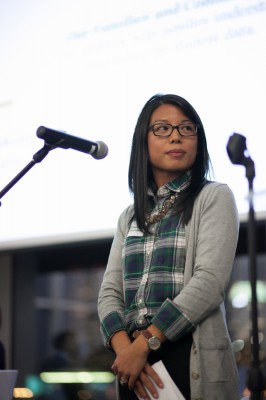‘True Grit’ in LA: Five ways teachers, parents, schools come together
When it comes to meeting our students’ needs, it’s no secret among teachers that partnerships with parents are crucial. We may get to know students well during a seven-hour school day, but as teachers, we can never hope to know as much about our students as parents know about their children.
While parent engagement may seem like a no-brainer, getting it right takes dedicated and continued effort. Parents, teachers, and students alike are frequently frustrated by a number of roadblocks, such as scheduling conflicts, language barriers, lack of technology, and a by-the-numbers approach that doesn’t account for individual circumstances.
But when partnerships are done right, everyone thrives. By working to close the communication gap, Valor Academy, the school where I teach, has created a collaborative culture and a support system for all of us. Now, with a feedback loop between students, parents, and teachers, we have a robust picture of how students are doing – not just for the hours the child is in school, but all the hours at home that impact growth and development.
I recently participated in a series of focus groups with over 400 classroom teachers and administrators from some of Los Angeles’s most-improved schools. The work of these focus groups culminated in the report: “True Grit: The Game-Changing Factors and People Lifting School Performance in LAUSD.”
No school, including mine, said parent engagement was easy. But by evaluating a number of best practices, the survey identified actionable steps every school can take. Here are five simple, concrete
Moody’s: college money woes are getting worse
Facing stagnant enrollment and increasingly price-conscious consumers, already cash-strapped universities will continue to see their revenues fail to keep up with inflation, the bond-rating agency Moody’s Investment Service says. The proportion of public universities with expected revenue declines has doubled over last year. Nearly 30 percent of public and one out of five private universities wil
Redefining intelligence
Anyone with lingering questions from childhood may just find the answers in Ungifted: Intelligence Redefined (2013), Scott Barry Kaufman’s first book. Kaufman, a cognitive psychologist at New York University, begins with a memory of being bullied in the boy’s bathroom at school for having to repeat third grade. While this book isn’t a tale about peer bullying, it is born out of another form of bul

